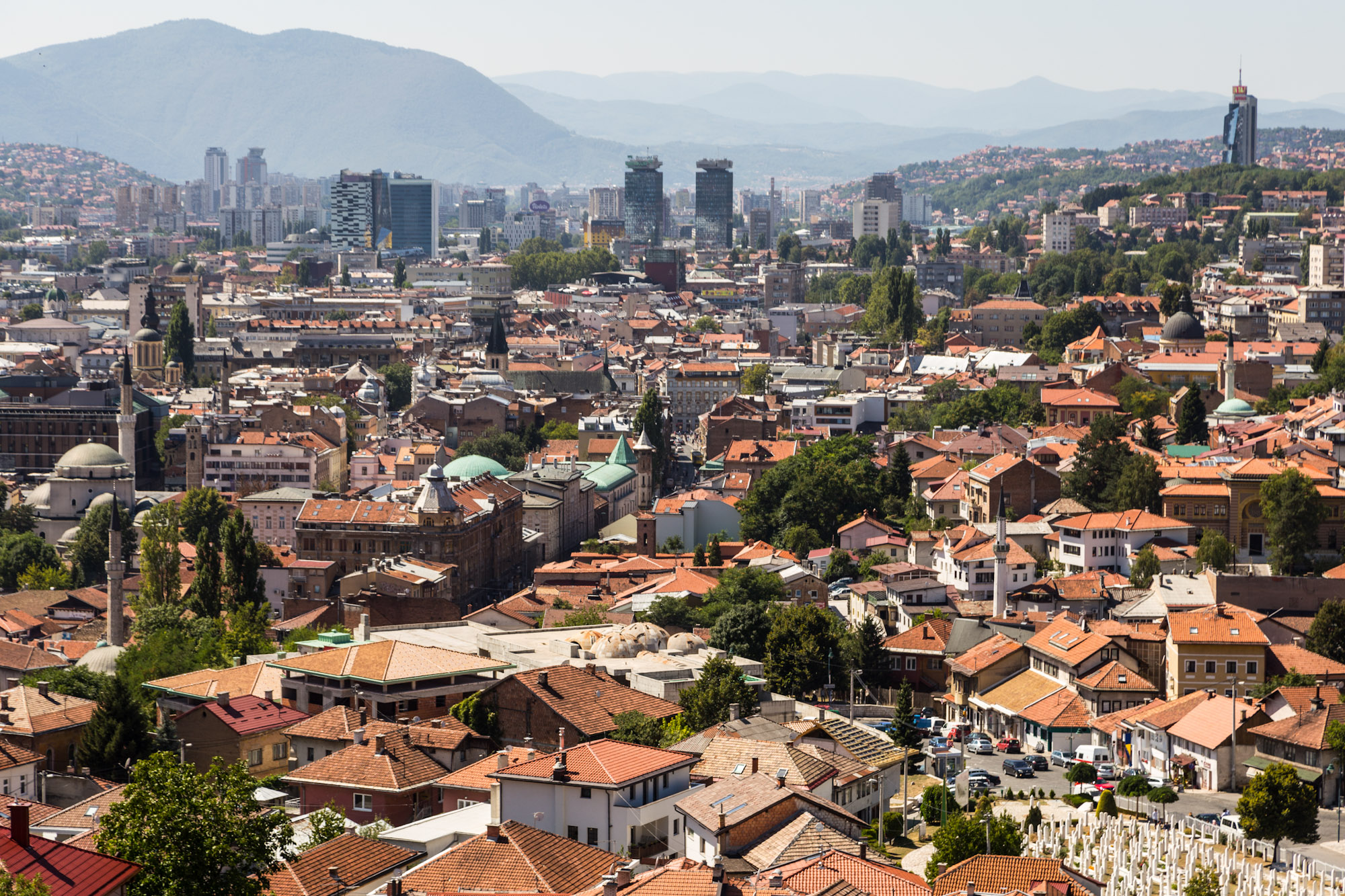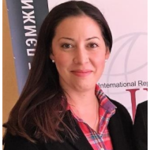Bosnia and Herzegovina’s Extremely Complicated Electoral System Unpacked

Tomorrow, October 2, Bosnia and Herzegovina (BiH) will hold general elections for the eighth time since the signing of the Dayton Accords – the 1995 peace agreement that ended the three-and-a-half-year Bosnian War that was precipitated, in part, by the dissolution of Yugoslavia and marked by a brutal genocide.
While the Accords provided a framework for peace and a preliminary plan for transitioning the war-torn BiH from ‘bullets to ballots,’ it also laid the groundwork for a multiethnic democratic state. What followed was an overly complicated constitution that prescribes a mixed presidential and parliamentary electoral system and an ethno-political split between two autonomous entities and three ethnic designations within the State: the majority Serb Orthodox populated Republika Srpska (RS) and the majority Muslim Bosniak and Catholic Croat populations in the Federation of Bosnia and Herzegovina (FBiH). In the short term, the system provided the basis for immediate peace and power sharing but, in the long term, has not resulted in an inclusive, equitable, and genuinely democratic governing system.
What is at stake?
Tomorrow, voters in BiH’s two entities will choose a total of three members of the Presidency, 14 parliaments, and 136 ministries. In the Federation of BiH, they will be electing a total of 445 representatives for the Parliament of the Federation of BiH (FBiH) and ten cantonal assemblies, while in the RS they will vote for 83 representatives in the National Assembly and the President of the RS. In addition, voters will elect a total of 42 members of Parliament in the House of Representatives of the Parliamentary Assembly of BiH (28 are elected in the Federation and 14 in RS).
While the RS has a centralized legislature—the National Assembly—within the Federation are 10 separate cantons, each with their own government and legislatures and that have autonomy in certain public service sectors such as policing and education. In Northeast Bosnia there is also a multi-ethnic, self-governing autonomous region of Brcko.
At the national level, there is a bicameral parliament with a House of Peoples and a House of Representatives that together comprise the Parliament of Bosnia and Herzegovina. Also, at the national level there is a three-person presidency (each representing the three constitutionally recognized ethnic constituencies: Bosniak, Serb, and Croat) that serve as head of state. The Prime Minister, officially the Chairman of the Council of Ministers of BiH, is nominated by the Presidency and approved by the House of Representatives.
Importantly, the state requires that political candidates register their ethnicity to run for office and that citizens may only vote for a single member of the presidency within the ethnic constituency they reside. Meaning, if you are a resident in the Federation, you may only vote for a Bosniak or Croat candidate and if you reside in the Republic of Srpska you may only vote for a Serbian candidate. In addition to having no representation at the national level, BiH’s other minority groups, including ethnic Romas and Jews, cannot run for high office, alienating these populations as voters and candidates, and preventing them from having a voice in the direction of their country.
Why does it matter?
Ethnonationalism and the complexity of the political system exacerbate political leaders’ susceptibility to corruption, which in turn erodes public trust in political parties and electoral institutions. Recent election observer reports published by Transparency International found over 1,300 examples of the use of public resources for the promotion of parties and candidates and a significant increase in public spending in the pre-election period.
Similarly, an August OSCE poll of Bosnians found that every fourth respondent was offered money to vote for a party or a candidate, and over a fifth of respondents experienced someone telling them who to vote for at the polling station. A mere 23% of respondents felt that elections in BiH are conducted in a fair or mostly fair manner. Given the ubiquity of electoral fraud and campaign corruption, it is perhaps not surprising that nine out of ten citizens polled by IRI in February of 2022 said BiH was headed in the ‘wrong direction.’
Second, BiH’s ethnocratic political system, in particular the centralized legislature and the office of the president in the Republic of Srpska, is much more powerful than that of the Federation. The process for selecting three presidents, whereby citizens in the single constituency of the RS vote for one president of Serbian ethnicity, while citizens in the Federation vote for two presidents of either Bosniak or Croat ethnicity, translates to just 33% of voting power per citizen for the office of the president and undermines the principle of “one person one vote” – the rule that one person’s voting power ought to be equivalent to another person’s within the same state. Therefore, there is no need to address all constituents in the whole of BiH because the electoral divisions do not obligate candidates in the RS to attract vote from other ethnicities.
Third, BiH’s ethnocratic political system has created institutional barriers that make transition to liberal democracy extremely difficult due to the tendency for political actors to default to nationalist agendas and pander to foreign geopolitical interests. One side favors an ethnocratic state and the other side for the most part wants a liberal democratic framework. However, there is no appetite or financial incentive for nationalist politicians to join multiethnic parties or to work across party lines on electoral reform if it threatens their pocketbook or hold on power. The fact that BiH has failed to implement all outstanding judgements of the European Court of Human Rights—a prerequisite to join the EU—is a manifestation of this dynamic.
Finally, illiberal foreign actors, particularly Russia, are eager to exploit ethnic divisions in BiH to funnel funding to proxies with the aim of advancing their geopolitical agenda in the region, sowing discord, and undermining pro-NATO, pro-Euro-Atlantic aspirations. In BiH and elsewhere in the Balkans, Russian election interference is hardly disguised, with reportedly some 300 million euro funneled to political parties and candidates around the world including those in the RS, Montenegro, and other Eastern European countries.
Given these growing concerns it is not surprising that middle-class flight is contributing to massive ‘brain drain’ in BiH, and therefore there is a shortage of Bosnians with the optimism and education to tackle these incredibly hard development challenges which has in turn heightened public anxiety about BiH’s democratic future.
What can be done?
Despite citizen disillusion with political parties, distrust in electoral institutions and endemic corruption there are windows of hope. Tomorrow’s elections have the potential to be much more credible than years past. Reforms to the election law including strengthened rules for campaigning that give the Central Election Commission authority to remove a party or individual from the candidate lists, new prohibitions on hate speech, tighter regulations on the use of on and offline media in the campaign period, and penalties for the abuse of public resources in the election campaign could reduce the prevalence of electoral fraud in 2022. Moreover, legislatures at the national level are still powerful. It is possible that the 2022 general elections could result in enough increases in opposition parties at the national level to pass two key legal reforms which could better position BiH for EU integration: the conflict-of-interest law and the political party finance law—the latter of which has the potential to reduce the enormous amount of illegal money flows from malign foreign interference and from corrupt political practices. The international community should condemn bilateral foreign actions and policies that aim to stoke ethnic division and exacerbate corruption in BiH.
While the U.S. was instrumental in brokering peace in the past, there’s also opportunity to lead efforts to foster reform in BiH through: supporting democratic actors that are committed to inclusive reform processes and multiethnic rule, raising awareness of attempts by illiberal regimes to subvert elections through the illegal funding of political campaigns, upholding role models for effective political pluralism especially youth with policy-oriented platforms, promoting issue-based cooperation through multi-party groups and caucuses including the European Integration and Security Caucus (EISC) in the State Parliament and the Cultural Heritage Parliamentary Group in the Federation Parliament (CHPG).
Beyond 2022, it is imperative that the BiH elections are not just an exercise for three ethnic constituencies but are a legitimate expression of the will of all individual Bosnians.
Top